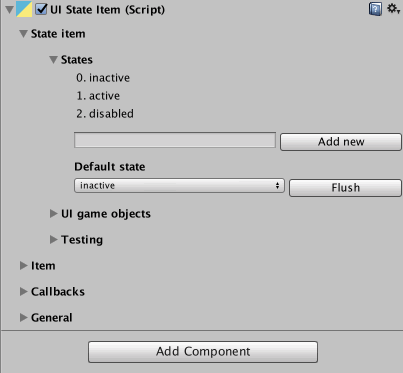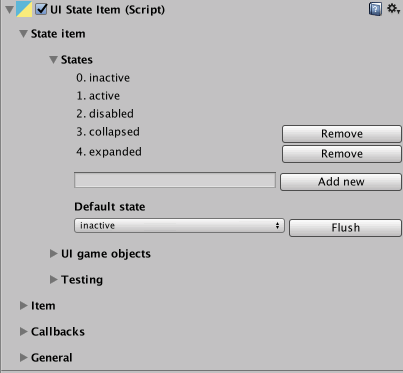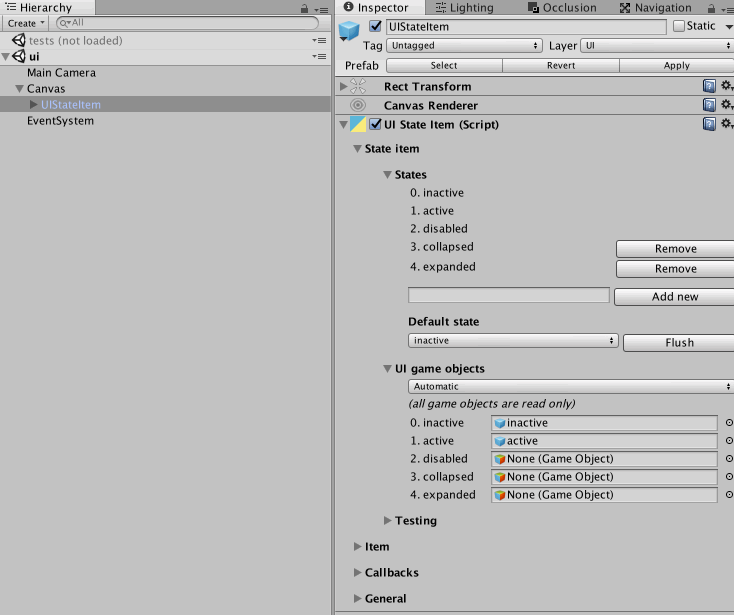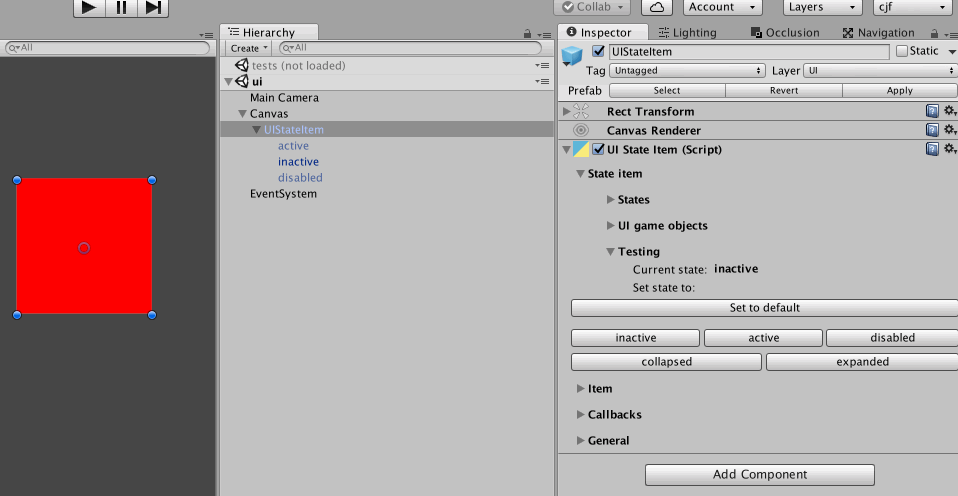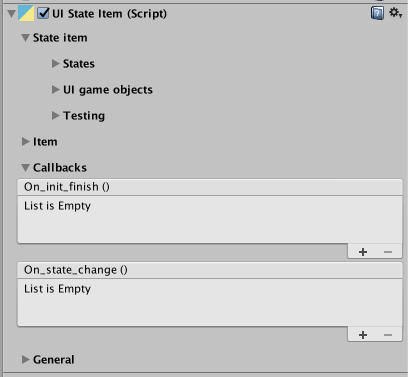UIStateItem implements different UI item states and provides API to switch between them.
UIStateItem contains three built-in states: active, inactive and disabled, that ideally fits most of UI elements use cases.
Besides of that you can add any additional states that you need.
Usually at initialization it's required to set UIStateItem to default state.
You can set default state to one of your state. Use "Flush" button if you don't need a default state.
States UI game objects:
UIStateItem is automatically uses nested gameobject for each state with exact name.
Alternatively you can switch to "Manual" mode. It will allow you to link each state game object manually to any game object from hierarchy.
On state change UIStateItem uses GameObject.SetActive to enable new state UI game object and to disable other states.
You can easily test state change directly in editor as well as in player mode.
UIStateItem implements callback event OnStateChange that called at any state change
Check the next additional components to add extra features to UIStateItem * UIStateItemMirror * UIStateItemAnimation

